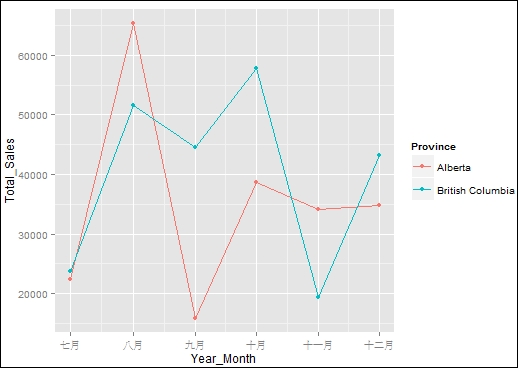Introduction
When analyzing data, our primary goal is to efficiently and precisely deliver the findings to our audience. An easy way to present data is to display it in a table format. However, for larger datasets, it becomes challenging to visualize data in this format.
For example, the following table contains regional sales data:
|
Region |
Jul-12 |
Aug-12 |
Sep-12 |
Oct-12 |
Nov-12 |
Dec-12 |
|---|---|---|---|---|---|---|
|
Alberta |
22484.08 |
65244.19 |
15946.36 |
38593.39 |
34123.56 |
34753.98 |
|
British Columbia |
23785.05 |
51533.77 |
44508.33 |
57687.6 |
19308.37 |
43234.77 |
In table format, it is hard to see which region's sales performed best. Thus, to make the data easier to read, it may be preferable to present the data in a chart or other graphical format. The following figure is a graph of the data from the table, which makes it much easier to determine which region performed best each month in terms of sales:

Figure 1: Sales amount by region
One of the most attractive features of R is that it already has many visualization packages...
































































